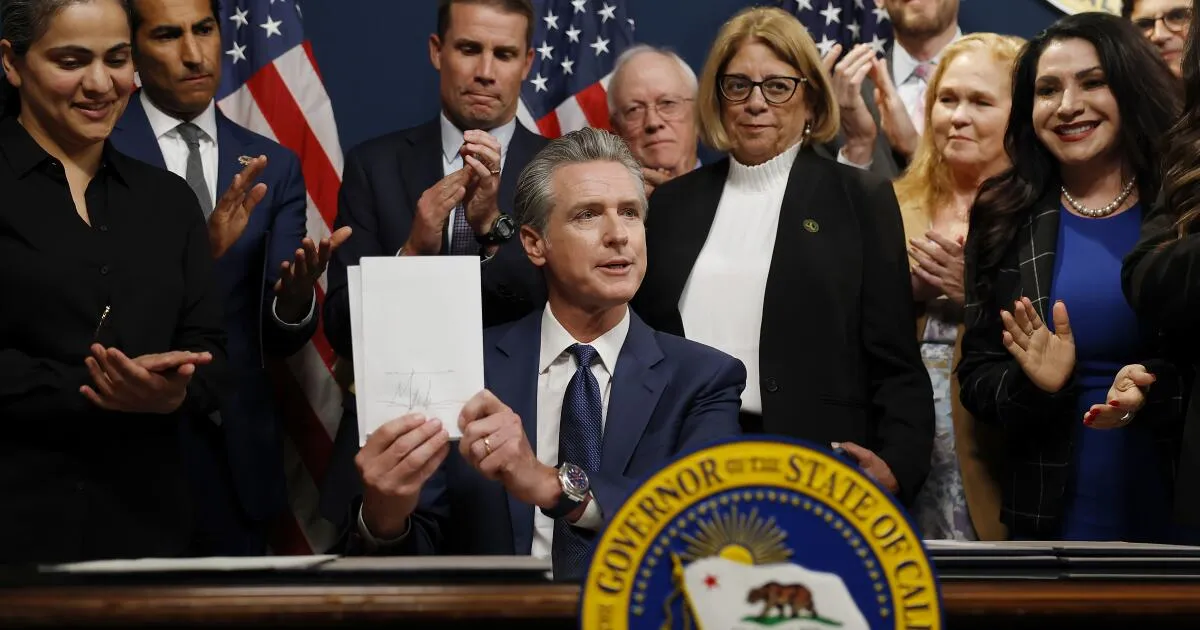
On Monday, California Republicans escalated their legal battle by asking the state Supreme Court to block Governor Gavin Newsom’s controversial redistricting plan from appearing on the November ballot. The Republican lawmakers assert that the hastily assembled initiative violates the California Constitution. In a comprehensive 432-page lawsuit, they argue that the Democratic-led effort to dismantle the state’s nonpartisan congressional districts infringes upon the rights of Californians to have fair and impartial electoral maps.
This latest legal challenge follows a similar emergency petition made by the party last week, which was denied without a hearing. The ballot measure, known as Proposition 50, was crafted by Democrats as part of a retaliatory response against the GOP-controlled Texas Legislature. The Texas legislative body has enacted new congressional districts that could enable Republicans to gain five additional seats in the upcoming 2026 midterm elections.
The California plan aims to replace the state’s nonpartisan maps with boundaries designed to favor Democrats. The lawsuit, filed against California Secretary of State Shirley N. Weber and the state Legislature, contends that the ballot measure is essentially presenting voters with two separate questions: first, whether Congress should amend the U.S. Constitution to mandate independent redistricting across the nation; and second, whether to eliminate the nonpartisan districts for the 2026, 2028, and 2030 elections in favor of partisan delineations that benefit Democrats.
Michael Columbo, an attorney representing the plaintiffs, describes the ballot measure as an “illegal, take-it-or-leave-it choice,” which he claims creates a dilemma for those in favor of independent commissions. He argues that this violates the state constitution, which stipulates that ballot measures must address a single issue. Meanwhile, David A. Carrillo, the executive director of Berkeley Law’s California Constitution Center, countered that the shared subject of redistricting provides a valid basis for the measure’s structure, calling the plaintiffs' argument “weak.”
In a related development, former President Donald Trump announced on Monday that the Justice Department would soon file a lawsuit against California over the redistricting plan, expressing confidence in the case’s success. However, he did not clarify the legal grounds for such a challenge. In response to Trump’s threat, Newsom took to the social media platform X, stating, “BRING IT.”
A spokesperson for Weber declined to comment on the lawsuit, while Hannah Milgrom, a representative for the Yes on 50 campaign, criticized the Republican challenge, stating, “Trump’s toadies already got destroyed once in court. Now they are trying again to protect Trump’s power grab and prevent voters from having their say on Prop 50. They will lose.”
The lawsuit further claims that the state Legislature has overstepped its constitutional authority by proposing new congressional districts, particularly given that voters passed a measure in 2010 transferring that power to an independent panel. Republicans argue that Democrats should have first sought voter approval to suspend independent redistricting before proposing new maps. Carrillo emphasized that the legal dispute centers on the significant power voters possess to amend the California Constitution, including the authority over who drafts the state’s congressional districts.
While the California Supreme Court has occasionally removed voter initiatives from the ballot, Carrillo notes that such actions are rare and typically reserved for extreme cases. He assesses that it is “very unlikely the court would reach for the nuclear option.” Additionally, on the same day, opponents of Proposition 50 filed a public records request with California Attorney General Rob Bonta, seeking communications between his office, Newsom, and key Democratic strategists to promote transparency regarding how Prop 50 will be presented to voters.
Former House Speaker Kevin McCarthy and ex-California GOP chair Jessica Millan Patterson lead the group advocating for transparency, arguing that voters deserve to know if Democratic leaders are attempting to manipulate how their partisan interests will be represented in what should be an impartial analysis.